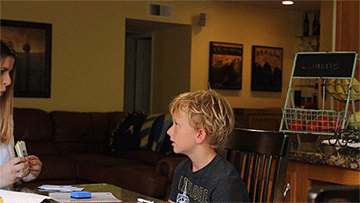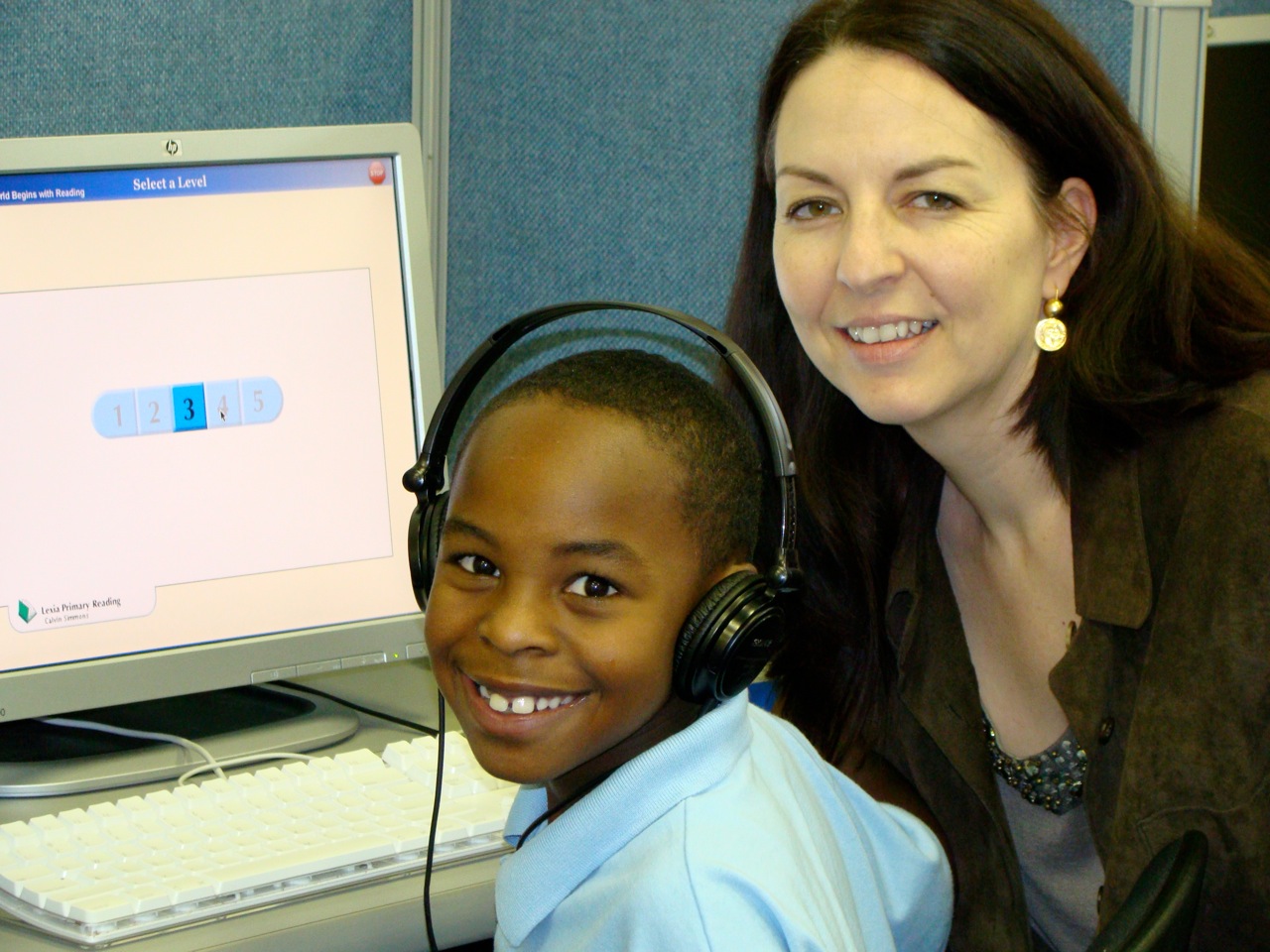
by PRIDE Reading Program Admin | Jan 30, 2018 | A PRIDE Post, Multisensory Teaching, PRIDE Reading Program, Vocabulary

Children typically start Kindergarten knowing around 5000 words. During the next three grades they learn at least one thousand more new vocabulary words per year and by Grade 4, they are learning on average from one thousand to three thousand new vocabulary words per year! According to research, only some words are learned through direct vocabulary instruction in the classrooms or home study programs and all the rest is learned through reading itself! Now you understand why reading a lot is so important in the development of vocabulary. Here is the research – if you want to dig in to it a little deeper.
Reading a lot is the very best way for kids to learn vocabulary, but today I am going to focus on the other part of learning vocabulary. The methods and teaching of it. Although many strategies are effective for students with varying abilities, the following methods always work best for my kids to help make those vocabulary words really “stick”:
How to Introduce Vocabulary Words during Reading
1. Use “child-friendly” language with your child when explaining the words by using everyday language that the child can understand and connect with.
2. Personalize the word to your child that includes references to “you,” “something,” and “someone” to help your child make a personal connection with their own lives.
3. Have your child create their own examples of the word.
After your child understands the meaning of the vocabulary word it is time to write down that word and practice it. This is where you pull out those index cards and markers. Have the kiddos write the word on one side and write the definition on the back side. I review the flashcards with my kids constantly ( I’m talking all year) and it is really encouraging and motivating for the kids to see their vocabulary bundle grow bigger and bigger. I try not to over drill so whenever I can I use some fun review activities. Here are some that my kids really enjoy:
How to Practice Vocabulary Words
– in a fun way!
Click on the toggles below:
Draw the Word
Have your kids draw an image of each vocabulary word. Make the images funny and memorable so they really stick in the child’s mind. You can also use this drawing on their flashcards.

Play Charades
Make a game out of learning the vocabulary words – like playing charades. Take turns where your child has to act out the word and you have to guess it, and then the other way around.

Write a Story
You can have your child incorporate the vocabulary words into a fun and creative story. This will really help them spell and practice using the words in sentences.

Vocabulary Word of the Day
This is the very best way to practice vocabulary and use the entire family in the process. Post one of the flashcards up on the front door. Every time your child walks in and out of the door they have to give you the word in a sentence. Make the whole family participate in it – so much fun! You can also make it Vocabulary of the Week – if the child (or anyone else in the family) needs extra practice time.


A Word About Audiobooks…
Listen to audiobooks regularly! Audio books will help expand your child’s listening vocabulary. Later on, when your child runs into the same word in print, they will be better able to decipher the word and its meaning by having already had the exposure to it beforehand. I always have my kids listen to a novel first, before reading it. It gives them the pronunciation of those difficult to pronounce locations, names and other Proper Nouns that they struggle with when reading. My local library offers free audiobooks with a library card, see if your local library offers the same service. If not you can purchase audiobooks from Amazon or iBookstore. If your child has been diagnosed with a learning disability you can also look into Learning Ally which is a non profit volunteer organization.
I hope these vocabulary methods and strategies work as well with your kids as they do with mine. If you have any other methods or tips that work for you, please include them in the comments section of this post. If you enjoyed reading this post, you might also enjoy reading Spelling With Letter Tiles.
Thank you so much for visiting my Blog today!
Karina Richland, M.A., is the author of the PRIDE Reading Program, a multisensory Orton-Gillingham reading, writing and comprehension curriculum that is available worldwide for parents, tutors, teachers and homeschoolers of struggling readers. Karina has an extensive background in working with students of all ages and various learning modalities. She has spent many years researching learning differences and differentiated teaching practices. You can reach her @ info@pridereadingprogram.com or visit the website at www.pridereadingprogram.com

by PRIDE Reading Program Admin | Apr 15, 2017 | A PRIDE Post, Reading Disability
Although children do develop at different rates, attributing a struggling reader to immaturity is risky and usually unhelpful. Children, who are poor readers at the end of first grade, are most often still poor readers in fourth grade.
Early signs of reading problems should never be ignored or passed off as a developmental lag. It is never a good idea to “wait and see” if a child grows out it. The safest assumption is that early, direct teaching designed to help a struggling reader will minimize risks later on. If a child is taught the sounds, letters, words, and language comprehension skills necessary by the end of first grade, most of these children will avoid failure.
Reading intervention in kindergarten and first grade is more effective than intervention in fourth grade and older. This is because early intervention takes less time and resources to close the reading gap than using remediation strategies in reading later on. According to The National Institute of Child Health and Human Department, 90% of poor readers can increase reading skills to average reading levels with prevention and early intervention programs that combine instruction in phonemic awareness, phonics, spelling, reading fluency, and reading comprehension provided by highly qualified and well-trained teachers. It takes four times as long to improve the skills of a struggling reader in fourth grade as it does to do so between mid-kindergarten and first grade. In other words, it takes two hours a day in fourth grade to have the same impact as thirty minutes a day in first grade. If intervention is not provided until nine years of age, approximately 75 to 88 % of these children will continue to have reading difficulties throughout high school and their adult lives.
Although there is a crucial window of opportunity (kindergarten to middle of first grade) parents need to know that it is never too late to help a struggling reader. Older children can be taught to read but the instruction may be harder to arrange, it will take more time, and it will require an intensive effort from the teacher, the student, and the parent.
On the whole, delayed intervention is costlier to everyone, including the child. These children will be more likely to develop confidence, enjoy reading, read more, and read better if they get off to the right start.
Karina Richland, M.A., is the Founder of PRIDE Learning Centers, located in Southern California. Ms. Richland is a certified reading and learning disability specialist and speaks frequently to parents, teachers, and professionals on learning differences. She is also the author of the PRIDE Reading Program, an Orton-Gillingham approach to teaching reading, writing and comprehension. You can visit the PRIDE Learning Center website at: www.pridelearningcenter.com

by PRIDE Reading Program Admin | Mar 5, 2012 | News & Events
Our summer program is our most popular program of the year. Pride’s teachers are all credentialed and certified in Orton-Gillingham methodology. Pride programs are always taught one-on-one.
Pride’s fun-filled yet intensive one-on-one reading program has become so popular that we even draw families from all over the globe. Recent students have come to Pride from China, Japan, Saudi Arabia, France, England, Canada and even the San Fernando Valley.
Sample Daily Schedule:
9:00 – 10:00: Orton-Gillingham Reading Instruction
10:00 – 10:30: Computer Based Reading Instruction
10:30 – 11:00: Snack, Fun and Movement
11:00 – 11:30: Written Expression
11:30 – 12:00: Orton-Gillingham Reading Instruction
Times:
9:00am – 12:00pm or 1:00pm – 4:00pm Monday – Friday
Our Summer 2012 program runs weekly from June 25th – August 31st. You can sign up for any weeks you like during those dates.
Tuition is $980 weekly
Take advantage of our Discounts!
- 10% off early registration by April 31, 2012
- 10% off for returning families
- 20% off for bringing a friend
- 15% off if you register for 4 or more weeks
Space is limited and our summer sessions fill up quickly.
Call us today at 866-774-3342 to request a registration form. Or email us at info@pridelearningcenter.com

by PRIDE Reading Program Admin | Aug 29, 2011 | A PRIDE Post, Language & Reading
By: Renée Firby, MSC CCC-SLP
Over the last several years countless families have come to our offices seeking assistance for their children who are struggling academically. The majority of our school-aged clients present with some form of language learning disabilities. These language learning disabilities can directly impair a child’s reading ability. Research supports that one of the best predictors of a child’s success in reading is an individual’s oral language abilities. So you ask, “What’s the connection?”
As infants we begin to learn language. We respond to pleasant voices by smiling, we turn our heads when we hear sound, and we begin to babble. These emergent language skills continue to grow and develop over the first few years of life to more complex unconscious abilities such as storytelling, developing and understanding humor, making judgments as to the appropriateness of content for certain listeners, editing for errors, learning metaphors, similes, antonyms, synonyms, etc. Although many children acquire the most basic and fundamental components of language such as vocabulary, generating a sentence, and grammar, they fail to learn the more complex language skills. Reading requires the ability to unconsciously define words, recognize synonyms, antonyms, and homonyms, identify parts of speech, recognize grammatical errors, recognize multiple meanings, etc. Therefore, reading is a language-based skill as it utilizes all of the same processes of an individual’s complex oral language skills. If an individual is unable to develop complex oral language skills, they are unable to develop the skills necessary to be a successful reader.
Speech and language intervention is an essential component to the achievement of a successful reader for those who are challenged academically! Intensive treatment supports the development of advanced language skills, which in turn support the skills necessary for reading. Jackson Jade Speech & Occupational Therapy customizes treatment programs that are designed to innervate the areas of the brain responsible for language development, which target the fundamental building blocks for reading including phonemic awareness, phonics, vocabulary development, fluency, and comprehension. Research indicates that stand alone school-based programs are not intensive enough to meet the needs of struggling readers. Children who are enrolled in intensive programs and those who receive early intervention tend to score higher on cognitive and academic achievement measures than those who do not receive intervention or rely on school-age treatment alone.
If your child is struggling with reading there are several things you can do to support their development. In addition to seeking school-based services, enroll them in a reading-based program that uses a multisensory approach and seek a comprehensive language program through a speech language pathologist that specializes in brain based development.
________________________________________________________________________
Renée Firby, MS CCC-SLP is a speech language pathologist and executive director of Jackson Jade Speech & Occupational Therapy. Ms. Firby has extensive experience working with medically, educationally, and cognitively challenged individuals. She has provided speech language pathology services to infants through the geriatric populations ranging from the mildest to most severe impairments.
If you have any questions or would like information about scheduling an appointment at Jackson Jade Speech & Occupational Therapy call 888-808-7838 or visit www.jacksonjadesp.com for more information.

by PRIDE Reading Program Admin | Aug 23, 2011 | A PRIDE Post, Auditory Processing Disorder
By Karina Richland, M.A., E.T.
- Is your child easily distracted or bothered by loud or sudden noises?
- Are conversations difficult for your child to follow?
- Are noisy environments upsetting?
- Are verbal (word) math problems demanding?
- Does your child have difficulty following directions?
- Is abstract information tough to interpret?
- Does your child struggle with reading, spelling, writing, or other speech-related language difficulties?
Central auditory processing disorder (CAPD) occurs when the ear and the brain do not coordinate together completely. Many of the behaviors associated with central auditory processing disorder also appear in other conditions such as learning disabilities (LD) and attention deficit disorder (ADHD). The symptoms in each individual can range from mild to severe and only a trained professional, such as a speech-language pathologists and an audiologist who specialize in CAPD, can determine if your child actually has a central auditory processing disorder.
If your child does have central auditory processing disorder and finds it difficult to concentrate and follow directions, there are numerous strategies that parents can implement for their child.
What was I supposed to do again?
In order to help a child with CAPD follow directions, try reducing background noises, always have the child look at you when you are speaking and use simple, expressive sentences. Speaking at a slightly louder volume and at a slower tempo will also help significantly. Have your child repeat the directions back to you aloud a few times and be certain that they understand the directions they are repeating and not just mimicking your voice.
I left my book at school.
A student with CAPD will thrive on routine and structure. Teach your child how to focus and cope in chaotic environments (like middle school). Before going home for the day, for instance, have the child check his or her assignment book and list what he or she needs to take home that day.
I can’t concentrate; it’s too loud in here.
At school the child should sit towards the front of the room facing the teacher with his or her back to the windows, doors, and other sources of distraction. The teacher can periodically touch the child’s shoulder to remind him or her to focus or get ready for a transition. Teachers should use lots and lots of visual aids jotting down instructions or key words on the board, and providing simple written outlines. For younger students a drawing works fine as a reminder.
At home, provide the child with a quiet study place. Keep the TV turned off and any outside stimuli far away. Make sure the work desk is free of clutter and well organized. Maintain a peaceful, organized lifestyle that also encourages good eating and sleeping habits and keeping a neat room and desk.
Teachers and parents both need to remember that central auditory processing disorder is a real condition. The symptoms and behaviors are not within the child’s control. Children with CAPD are not being defiant or being lazy. Help them build a strong self-esteem and learn to advocate for themselves, as they get older. Keep it positive and keep life fun!
__________________________________________________________________________________________
Karina Richland, M.A., E.T. is the Managing Director of Pride Learning Centers, located in Los Angeles and Orange County. A former teacher for Los Angeles Unified School District, Ms. Richland is a Reading and Learning Disability Specialist. Ms. Richland speaks frequently to parents, teachers, and professionals on learning differences, and writes for several journals and publications. You can reach her by email at: info@pridelearningcenter.com or visit the Pride Learning Center website at:
www.pridelearningcenter.com












